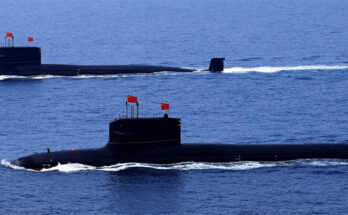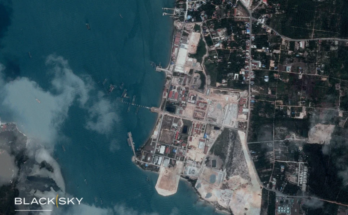Under its upcoming budget projections the Malaysian government plans to slash defense expenditures by roughly 10 percent year-on-year. The military spending reductions comes amidst a deficit reduction effort by Prime Minister Mahathir Mohamad’s new government.
This fiscal consolidation process planned by Mahatir’s Alliance of Hope (Pakatan Harapan) government involves cancelling and postponing infrastructure (mega rail and pipeline) projects and implementing select budgetary cuts in order to finance a social welfare net expansion (“people-centric policies” in the words of Finance Minister Lim Guan Eng). Greater fiscal transparency and acknowledging a much larger national debt (80.3 versus 50.8 percent) than previously reported by the ruling Barisan Nasional (BN) coalition government of longstanding prime Minister Najib Razak also form part of the new government’s economic policy (11th Malaysia Plan).
Another feature of the plan, however, involves tossing out the previous balanced budget target date of 2020 and instead declaring a short-term deficit-widening of up to 3.7 percent in 2019 and 3 percent in 2020 before gradually moving forward on the path of fiscal consolidation thereafter.
Against this fiscal somewhat contradictory backdrop is the government’s plan to harvest savings from the national security sector (made up of the Defense and Home Affairs Ministries). For its part the Defense Ministry will absorb a year-on-year hit of MYR1.5 billion ($359 million) in its 2019 earmark, thus reducing Malaysia’s topline defense figure by 9.7 percent. As a percentage of GDP the defense budget will fall to 0.9 percent next year, down from 1.5 percent in 2015.
Despite this decrease, however, funding earmarked for military development will rise slightly from MYR3.297 billion in 2018 to MYR3.647 billion ($874 million).Yet this top-up will provide little in the way of new equipment, instead going towards ongoing upgrade and acquisition projects.
When including the 2019 proposed budget the five-year picture for Malaysian defense spending is rather dour.
Following a high-water allocation provided to defense in 2015, the nominal budget has steadily shrunk. After reaching MYR17.7 billion ($4.5 billion) in 2015, annual allocations have fallen under that level resulting in a cumulative MYR9 billion shrinkage in reduced investment. The drop-off from the 2015 earmark to 2019 alone amounts to a 21 percent decline.
The Malaysian Armed Forces’ modernization ambitions increasingly appear beyond governmental willingness to provide requisite funding. Because of this – and the occasional economic downturn – multiple programs dating back to the 1980s have suffered delays or been cancelled outright.
With most of its security concerns involving border and exclusive economic zone (EEZ) protection and balancing its relations with both the U.S. and China the time may be right to undertake a fresh reform of the military with an eye on restructuring the armed forces and future capabilities in accordance with fiscal realities.
Dan Darling is Forecast International’s director of military and defense markets. In this role, Dan oversees a team of analysts tasked with covering everything from budgeting to weapons systems to defense electronics and military aerospace. Additionally, for over 17 years Dan has, at various times, authored the International Military Markets reports for Europe, Eurasia, the Middle East and the Asia-Pacific region.
Dan's work has been cited in Defense News, Real Clear Defense, Asian Military Review, Al Jazeera, and Financial Express, among others, and he has also contributed commentary to The Diplomat, The National Interest and World Politics Review. He has been quoted in Arabian Business, the Financial Times, Flight International, The New York Times, Bloomberg and National Defense Magazine.
In addition, Dan has made guest appearances on the online radio show Midrats and on The Media Line, as well as The Red Line Podcast, plus media appearances on France 24 and World Is One News (WION).




